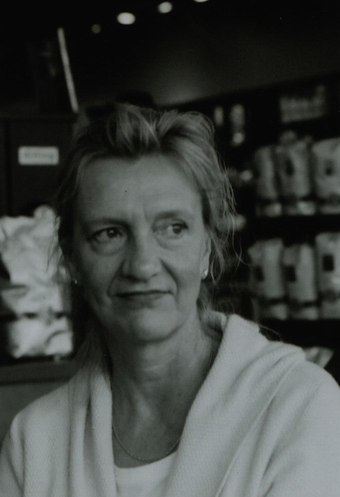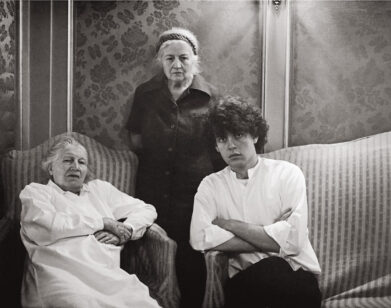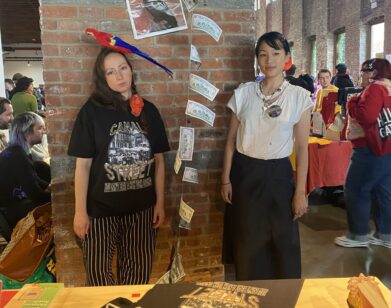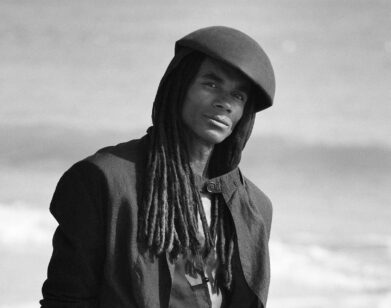Meet the Pulitzers

The Pulitzers have been announced, sending literati and casual observers alike scrambling to identify the winners. Elizabeth Strout isn’t on your nightstand? Haven’t made it to Theatre Club for a staging of Ruined? Here’s your crash course in the artists who won this year.
Elizabeth Strout won the fiction award for Olive Kitterigde (Random House), a collection of 13 short stories set in rural Maine. Her previous works include the bestseller Abide with Me, which was about small town Maine, and Amy and Isabelle, about the eponymous mother and daughter living in… rural Maine. If you’re looking to impress with intimate knowledge of Strout’s oeuvre, you might remark on how her sense of place reminds you of Alice Munro’s Huron County stories. Strout actually lives in Park Slope, so maybe we have the next great chronicler of strollers and tapas among us. (LEFT: PHOTO BY ROBERT BIRNBAUM)
Ruined, currently at the Manhattan Theatre Club, is inspired by Bertolt Brecht’s Mother Courage and Her Children, a play that railed against the rise of fascism in Europe. Set in a Congolese brothel, the title is a consideration of the character who is raped and genitally mutilated. Playwright Lynn Nottage, a Brooklyn native, won a MacArthur “genius” grant in 2007, and currently lives in Boerum Hill; Brooklyn is two for two.
In the history department, The Hemingses of Monticello: An American Family by Annette Gordon-Reed (W.W. Norton & Company), added a Pulitzer to its already impressive list of awards, including a US National Book Award this past fall. You may remember Ms. Gordon Reed for her 1997 book Thomas Jefferson and Sally Hemings: An American Controversy (University of Virginia Press), which argued not that Hemings’ children were necessarily descended from Jefferson, but that their claims had been unfairly dismissed, and that DNA testing could help resolve the matter. This caused quite the tizzy in circles that care about such things, and the book has since been deemed “controversial.” The following year, DNA evidence strongly suggested that at least one of Hemings’ children was fathered by Jefferson, and then she won a Pulitzer. Vindication is a wonderful thing.
W.S. Merwin won his second Pulitzer for poetry with The Shadow of Sirius (Copper Canyon Press). The fact that the man has won two Pulitzers and you’ve probably never heard of him says a thing or two about the contemporary poetry scene, so dedicating his name to memory will make you an expert on poetry in most circles, no questions asked. Merwin’s last win was for The Carrier Of Ladders in 1971, when he was known as an anti-war poet. He is currently an environmental activist whose pet cause is the rainforests of Hawaii.
In the biography section, Jon Meacham won for American Lion: Andrew Jackson in the White House (Random House). You may know Meacham as the editor of Newsweek, but you probably don’t, since few people under 65 reads Newsweek. However, under Meacham’s stewardship the magazine won two National Magazine Awards, and the fact that it continues to publish at all during the industry-wide slaughter says something about his leadership. The book looks at Jackson’s contradictory characteristics, and the fierce populism he brought to Washington, when he established precedents for the presidential system we’ve operated by ever since.
Finally, Slavery by Another Name: The Re-Enslavement of Black Americans from the Civil War to World War II by Douglas A. Blackmon (Doubleday), won in the general nonfiction category, which, let’s be honest isn’t anyone’s favorite category. However, it does give a nod to the fact that three of the five winning books deal with the African American experience in some way, perhaps demonstrating a growing ability for Americans to honestly examine their national history in the age of Obama.
That’s it for the literature sections, although it should also be noted that pioneering minimalist composer Steve Reich won for music. Why there is a Pulitzer for music, no one has ever been sure. Oh, and the New York Times won five awards for journalism, or something, and it was sort of a big deal; at least so says The Gray Lady herself.






